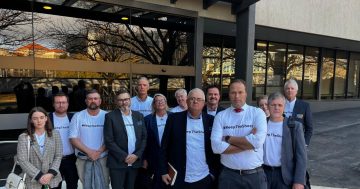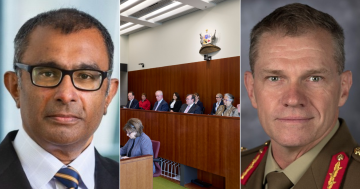 This week 10 years ago, Prime Minister, Julia Gillard announced the national Government would accept the recommendation of the Productivity Commission to set up a national disability insurance scheme.
This week 10 years ago, Prime Minister, Julia Gillard announced the national Government would accept the recommendation of the Productivity Commission to set up a national disability insurance scheme.
“The Australian Government supports the Productivity Commission’s vision for a system that provides individuals with the support they need over the course of their lifetime, and wants reform of disability services that is financially sustainable,” Ms Gillard said.
She said an immediate $10 million would be allocated to support technical policy work, establish a Select Council of Ministers from the Council of Australian Governments to lead reform, and set up an Advisory Group to serve the Council.
2. Also this week then, Australia ratified the International Labour Organisation Convention No. 162 concerning Safety in the Use of Asbestos.
Minister for Foreign Affairs, Kevin Rudd, who signed the Convention, said it required countries to implement national laws or regulations to protect workers against health hazards arising from occupational exposure to asbestos. He said ratifying the Convention should encourage other countries in the Asia-Pacific.
“Asia still accounts for over 60 per cent of the world’s imports of asbestos, and unfortunately, dangers to human health posed by the unsafe use of asbestos in the workplace are not yet well recognised in our region,” Mr Rudd said.
3. Researchers at the NSW Department of Primary Industries (DPI) embarked on a project to calculate the carbon footprint of Australia’s key agricultural commodities.
Leader of the Life Cycle Assessment project at DPI, Dr Pip Brock said the project would look at the production chain to the farm gate, measuring the greenhouse gas emissions from the production of some of the State’s iconic commodities.
“The project provides consumers, the agricultural industry and policymakers with rich information on the emissions impact of key commodities,” Dr Brock said.
“The data will help the industry direct its efforts on the most emissions-intensive stages of production and where we can have the greatest impact on reducing emissions and improving productivity.”
4. Several World War II defence sites in the Blue Mountains and at Lithgow were added to the NSW State Heritage Register, including a former railway tunnel and mustard gas storage facility in Glenbrook, the site of two former heavy anti-aircraft gun stations at South Bowenfels and Scenic Hill, and a dummy gun station at Lithgow.
NSW Minister for Heritage, Robyn Parker said the sites were part of a strategy to defend Australia in the event of an attack on home soil. “They are now part of Australia’s wartime heritage and will be protected for future generations,” Ms Parker said.
5. WA Premier, Colin Barnett announced a doubling of the capacity of the Southern Seawater Desalination Plant (SSDP) to provide 100 billion litres of drinking water a year, securing future water needs for communities stretching from Perth to the Goldfields.
Mr Barnett said expansion of the new plant was essential because long-term forecasts showed the south-west corner of Western Australia would become even drier in the future.
“It’s important we act now to ensure security for the Integrated Water Supply Scheme that supplies drinking water to Perth, Mandurah, the Goldfields and towns along the way to Kalgoorlie-Boulder,” the Premier said. “The expansion of the SSDP is necessary because we can no longer rely on rainfall run-off into our dams as a major source of drinking water.”
6. Also this week a decade ago, the Commonwealth Department of Immigration and Citizenship (DIAC) was preparing an agreement that would see local police involved in security at immigration detention centres. The matter was raised by the National Standing Council on Police and Emergency Management after unrest at several detention centres.
“Law enforcement Agencies have been concerned for some time about the lack of clarity regarding their powers, responsibilities and liabilities in relation to immigration detention centres across Australia,” NSW Minister for Police and Emergency Services, Michael Gallacher said.
He said the agreement would establish Agency responsibility between DIAC, the direct service provider, the Australian Federal Police, and the relevant State or Territory Police Force.










